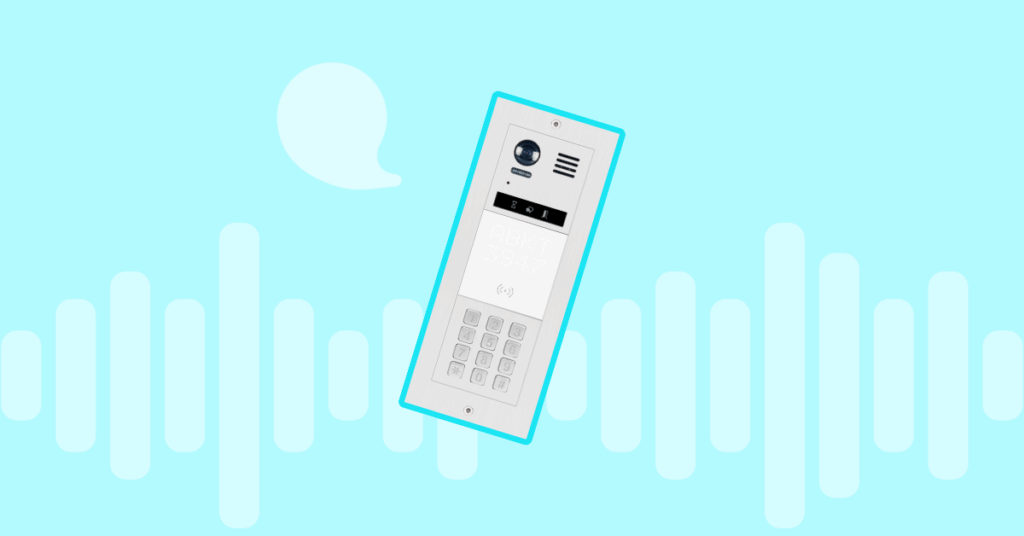
Table of contents
Businesses around the world have been moving away from analog landlines for a while now. The process has accelerated as operators in several countries have announced a cutoff date beyond which the network will be shut down in the region.
The reason for this is simple: as VoIP based phone systems become popular, operators do not want to maintain two networks. In other words, the good old PSTN is going away for good. Business owners looking to upgrade, replace, or purchase a brand new phone system will have to look elsewhere. So, what is a cloud telephone system?
The history of enterprise phone systems
The decline in landline usage is not the prime reason for the popularity of cloud telephone systems. These modern systems offer an incredible range of features for a ration of the cost of a typical enterprise Private Branch eXchange (PBX) system. But before diving into the specifics, let’s take a closer look at a cloud telephone system and its features.
Business phone systems have been around for a while and predate the internet. Most businesses used a PBX box to connect multiple employees at once with only a handful of numbers. Without a PBX, businesses would have to buy 1 number for every employee who needs and uses a phone.
As VoIP became popular, companies started replacing the older generation PBX systems with digital VoIP-enabled systems. However, they still had to buy and operate the telephone system. The costs of running your own phone system quickly add up – from buying equipment, maintenance, security, and setting up custom configurations.
At this point, service providers launched cloud telephone systems for businesses. These vendors do all the heavy lifting behind the scenes i.e, they own and maintain the systems and deliver phone services to companies over the internet. This model saves many headaches for businesses including having to secure the phones and troubleshooting problems when they happen.
What is a cloud telephone system?
A cloud telephone system is a VoIP-based enterprise phone system that is hosted by a third-party provider. The vendor delivers phone services over the internet to customers. These cloud services are characterized by low costs, a broad array of features, and integration with other enterprise tools such as CRM software.
At first, businesses hesitated to use cloud telephone systems as they didn’t deliver high-quality voice and were not as reliable as landlines. The early adopters primarily did so due to cost concerns as cloud telephone services cost much less than traditional PBX systems. But vendors have improved quality, reliability, and the available feature set over the years. Now, cloud telephone services are the most popular business-grade systems available in the market.
Benefits of using a cloud telephone service
Low cost
A cloud telephone service is without a doubt much expensive than the equivalent on-premise PBX system. With a cloud VoIP system, businesses save on multiple fronts including:
Initial investment
Why purchase phone hardware and software that you have to maintain and upgrade every few years? The initial setup costs alone often run into thousands of dollars, putting these systems out of reach for small businesses. In contrast, cloud VoIP services let you get started with a single number or a dozen depending on business needs.
Monthly bills
Everyone knows there is no such thing as a free lunch but with a cloud telephone system, your internal calls are totally free. Any calls made by an employee to another – no matter where they are – travels through the company’s data network or the public internet. So your business doesn’t have to pay for these calls. Additionally, international calls are also cheaper as you only pay for a portion of the call as it travels over the PSTN.
No maintenance
Since you don’t have any hardware, there is no need to worry about equipment breakdowns, deterioration, or regular maintenance. You do not have to renew software licenses or hire additional experts to manage the phone system.
Business owners can manage the configuration and change settings through an online dashboard. These ongoing cost savings quickly accumulate over the years, so switching to a cloud VoIP service now is a sound financial decision.
Security
Some people think VoIP systems – especially those hosted in the cloud – are not secure enough for businesses. The reality is that security depends on a lot of factors. When it is set up correctly, a cloud VoIP service can be the most secure communication system within an organization. But a few simple mistakes can easily cause companies to lose data or money due to fraud.
A lot of small and medium businesses do not have access to the IT expertise needed to configure and maintain a secure telephone system. Using a cloud telephone system is therefore a much better option since vendors are responsible for security. As long as you secure your internal network properly, your cloud telephone system will not be the weakest link in your security chain.
Advanced digital features
One of the biggest advantages, when you upgrade to digital systems, is that you get access to advanced features that were simply not possible with older equipment. Since VoIP is based on internet-based protocols (in direct contrast to telephony protocols), you get a modern communication system that is sophisticated and extensible.
Voicemail is a good example of this phenomenon. Visual voicemail allows users to get messages in their email inbox or mobile device. The messages are automatically transcribed into text and the original message is also available for listening. It allows employees to access voicemail from anywhere. They can also note down important details or call back clients without delays.
Visual voicemail is just one of the many features available with VoIP. From digital faxing to multidevice ring, you can make the phone system work for your business needs rather than the other way round.
Integrations
One of the biggest issues with analog communications systems is that the data is locked into silos. You cannot simply move data from one system to another or make it easily accessible in another context. For instance, a business may use CRM software to manage customer interactions. But when salespeople need to contact a client, they have to switch to another application or device to make the actual call.
VoIP minimizes those wasted moments. With the right integration in place, your employees can call customers from within the CRM app. What’s more, the call details (timestamps, duration, dates, etc.) are recorded with the appropriate client record automatically. Even if you save only 3 minutes of extra work with each call, imagine the benefits if your teams make hundreds of calls over the week!
Selecting the right cloud telephone service
After learning about cloud telephone systems, you might be ready to take the plunge. But how do you select the right service provider? A quick online search will get you thousands of results with near-identical features and prices. What makes one service better than the others or are they all the same?
The first thing to remember is that there is no single service that works for all businesses. Some providers specialize in small businesses while others focus on a certain industry (Say healthcare). The VoIP industry has matured quite a bit where most services offer a minimum standard of quality and features.
However, the key is in selecting the right provider for your business. Remember the following factors when making the choice to purchase a cloud telephone system:
Ease of use
Any phone system you buy has to be easy to use. The most advanced system in the world won’t help if your employees can’t use it effectively. A cloud telephone system is completely virtual so you will be accessing all the features through online dashboards. Make sure the service allows you to make changes at any time you need to. It should also be easy and intuitive to use.
Balance cost and features
Most companies consider the cost of a new system right from the start. But keep in mind that neither the least or most expensive system is going to be right for your business. Take care that you pay for the quality and the features you need. At the same time, avoid the trap of paying for things you might need ‘someday.’ VoIP allows you to buy resources as and when you need them, so there’s no need to pay upfront for extras.
Service support
Customer and tech support doesn’t get much attention until something goes wrong. As with any technology, your phones may stop working or develop other issues over time. You need a vendor who will communicate with you and work to resolve problems as soon as possible.
Check that you can access their support over multiple channels (including email, chat, social media, and voice). What is their response time if something goes wrong? How quickly d they get the phones back up and working? Note whether the provider offers an SLA (service level agreement) that covers their responsibilities and compensation options.
So what are you waiting for? Sign up for a free 30-day trial and move your communication system to the cloud!
More from the blog
Want to improve your business communication?
Unlock enterprise-class call center power at affordable prices – no hardware, no delays, no surprises!






